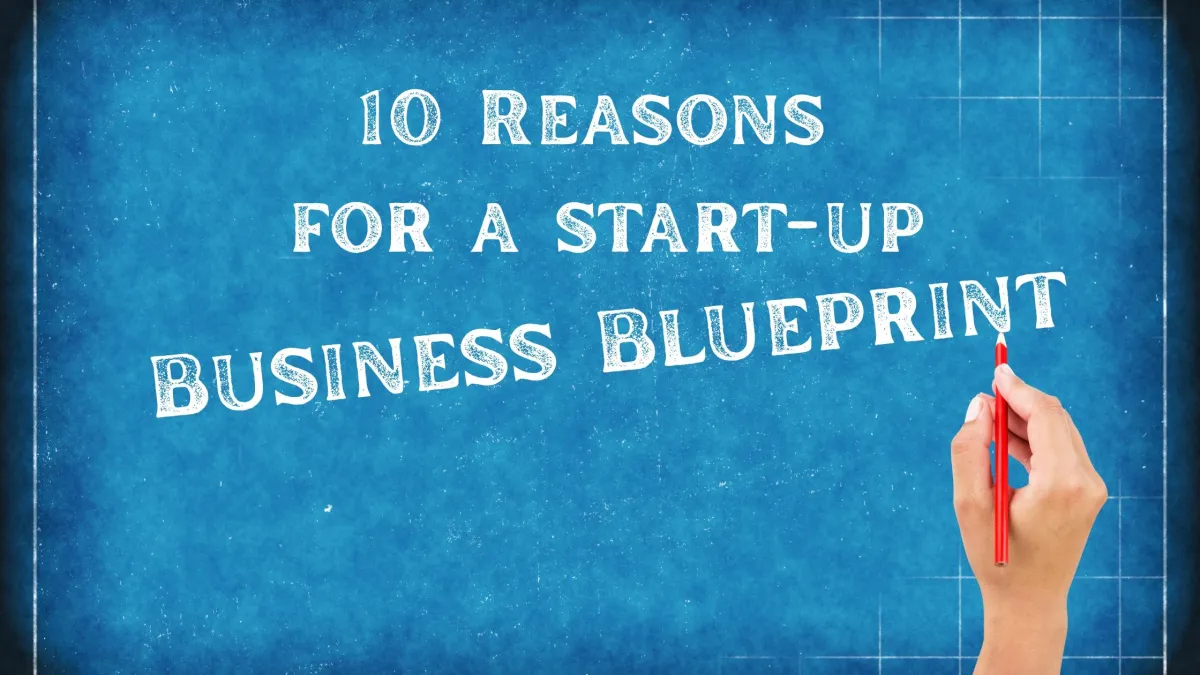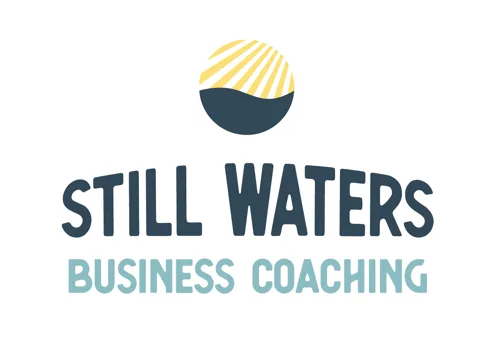
Top Ten Reasons for a Start-Up Blueprint
“Having no plan is like ... hunting for pirate’s treasure without an “X marks the spot.” A plan is your own personal prescription for greatness.” - Peter J. Patsula, author - The Entrepreneur’s Guidebook Series
All too often, I hear business owners say they don’t have a business plan, and they don’t think they need one. They aren’t looking for funding, the business has grown organically, and they just don’t see the value. They think it’s just going to sit on the proverbial shelf, collecting dust.
I understand that. But I think they’re missing one important point. And that is – the importance of the business plan is NOT the document itself, but rather, the thought process that goes into its creation.
If a business is to be successful long-term, it needs a good strong foundation. To build that foundation, you need a blueprint, a Start-Up Blueprint.
Here are 10 top reasons why this Start-Up Blueprint is necessary:
To prove you’re serious about your business. You want to show all interested parties — employees, investors, partners and yourself — that you are committed to building this business. This blueprint forces you to think through and select the strategies that will propel your growth.
To establish business milestones. You should clearly lay out the long-term milestones that are most important to the success of your business. To paraphrase Guy Kawasaki, a milestone is something significant enough to come home and tell your spouse about (without boring him or her to death). Would you tell your spouse that you tweaked the company brochure? Probably not. But you’d certainly share the news that you launched your new website or reached $1M in annual revenues.
To better understand your competition. This forces you to analyze the competition. All companies have competition in the form of either direct or indirect competitors, and it is critical to understand your company’s competitive advantages. And if you don’t currently have competitive advantages, you must figure out what you must do to gain them.
To better understand your customer. Why do they buy when they buy? Why don’t they when they don’t? An in-depth customer analysis is essential to a successful business. Understanding your customers will not only allow you to create better products and services for them, but will allow you to more cost-effectively reach them through your advertising and promotions.
To enunciate previously unstated assumptions. The process of actually formulating this blueprint helps to bring previously “hidden” assumptions to the foreground. By writing them down and assessing them, you can test them and analyze their validity. For example, you might have assumed that local retailers would carry your product; you could assess the results of the scenario in which this didn’t occur.
To assess the feasibility of your venture. How good is this opportunity? The process of developing this start-up blueprint involves researching your target market, as well as the competitive landscape and serves as a feasibility study for the success of your venture. In some cases, the result of your planning will be to table the venture. And it might be to go forward with a different venture that may have a better chance of success.
To document your revenue model. How exactly will your business make money? Documenting the revenue model helps to address challenges and assumptions associated with the model. It also allows for others to make suggestions for additional revenue streams to consider.
To reduce the risk of pursuing the wrong opportunity. The process helps to minimize opportunity costs, in that it helps you assess the attractiveness of this particular opportunity, versus other opportunities, so you make the best decisions.
To force you to research and really know your market. What are the most important trends in your industry? What are the greatest threats to your industry? Is the market growing or shrinking? What is the size of the target market for your product/service? Creating this blueprint will help you to gain a wider, deeper, and more nuanced understanding of your marketplace. And it will allow you to use this knowledge to make decisions to improve your company’s success.
To attract employees and a management team. A start-up blueprint can help you attract and retain top-quality talent, and can inspire employees and management that your idea is sound and that your business is poised to achieve its strategic goals. Importantly, as you grow your company, your employees and not you will do most of the work. So getting them aligned and motivated will be key to your success.
Can you operate a business without a plan? Sure, and a lot of people do just that. But those that do so are destined for that business to always be dependent on them. If you want the business to grow enough to where it becomes more than just a job for yourself, a business plan is essential.
Planning is the key to small business success. Our FREE book will help you build the business you want it to be. Go to https://www.swbizcoaching.com/ and enter your name and email to get started on the path to success.
Adapted from a series of Growthink blog posts, March 2024.
Copyright 2024. All rights reserved. To use content please contact Kim at [email protected]
Still Waters Business Coaching
513 Prince Edward St
Fredericksburg VA 22401
© 2025 Still Waters Business Coaching. All rights reserved.


Facebook
LinkedIn